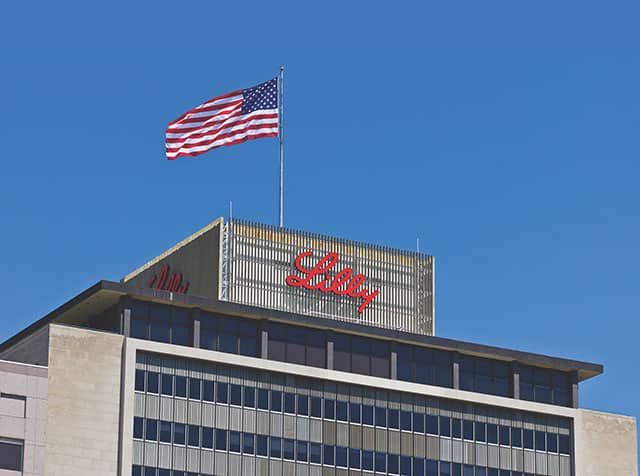
Eli Lilly is continuing to make a case for its antibody treatment in high-risk COVID-19 patients, with results showing that a combination of bamlanivimab and etesevimab significantly reduced the risk of hospitalisations and death in this population.
In the phase 3 BLAZE-1 trial, bamlanivimab 2800mg was administered alongside estesevimab 2800mg in high-risk patients who had recently been diagnosed with COVID-19.
The study met its primary endpoint, achieving a significant reduction in COVID-19-related hospitalisations and deaths in high-risk COVID-19 patients.
Across the entire study population, which included 1,035 patients, there were 11 events in patients receiving Lilly’s antibody combination treatment, while 36 events occurred in the placebo group.
This represented a 70% risk reduction, with no deaths occurring in the bamlanivimab and etesevimab-treated group.
The antibody combination treatment also demonstrated significant improvements in all key secondary endpoints, with strong evidence that the therapy reduced viral load and accelerated symptom resolution, according to Lilly.
“The death toll from COVID-19 continues to rise around the world and hospitalisations, particularly in the US, have reached record highs,” said Daniel Skovronsky, chief scientific officer of Lilly and president of Lilly Research Laboratories.
“This data further supports our belief that bamlanivimab and etesevimab together have the potential to be an important treatment that significantly reduces hospitalisations and death in high-risk COVID-19 patients,” he added.
Last week, Lilly also posted results for bamlanivimab monotherapy as a preventative treatment for COVID-19.
In the phase 3 BLAZE-2 trial, bamlanivimab was found to significantly reduce the risk of COVID-19 infection among residents and staff in care homes.
After eight weeks of follow-up, the participant group that was treated with bamlanivimab demonstrated a significantly lower frequency of symptomatic COVID-19 cases compared to placebo.
The results suggest that bamlanivimab-treated participants have up to an 80% lower risk of contracting COVID-19 compared to residents in the same facility who did not receive the antibody.
In December 2020, the US government purchased an additional 650,000 doses of bamlanivimab, increasing the total number of doses secured to 950,000.
Antibodies such as bamlanivimab could prove to be an important tool in the prevention of COVID-19 in care homes and for people who haven’t yet received vaccines, Lilly’s chief scientific officer Daniel Skovronsky recently told Bloomberg.




